A PUBLICATION FOR ALUMNI AND FRIENDS OF THE RUTGERS SCHOOL OF SOCIAL WORK


A PUBLICATION FOR ALUMNI AND FRIENDS OF THE RUTGERS SCHOOL OF SOCIAL WORK

RUTGERS MSW STUDENTS TURN PRACTICUM EXPERIENCES INTO POWERFUL LEARNING OPPORTUNITIES

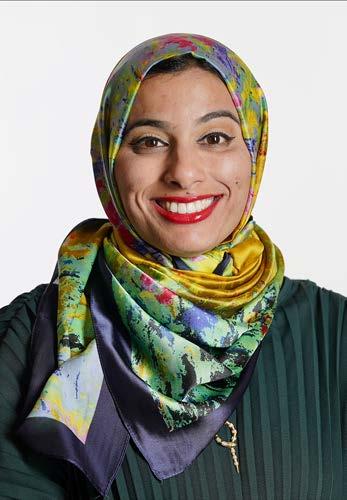
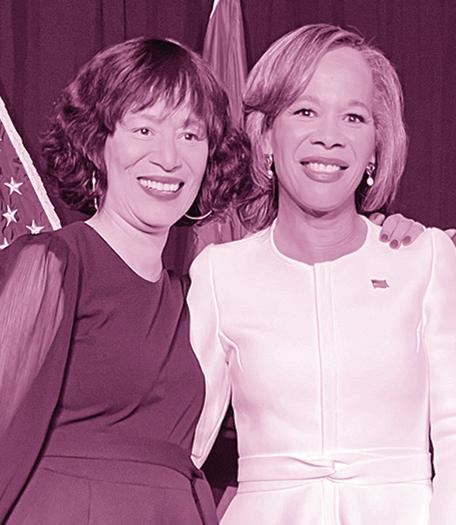


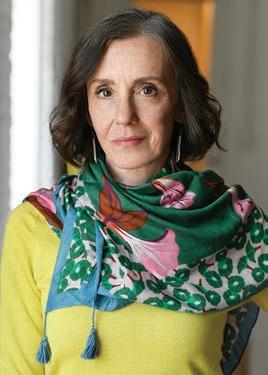

the
Five Objects that Matter
Faculty Voices in the News
Rutgers School of Social Work Alum
Dr. Tiffany L. Mayers Named NASW-NJ Executive Director
Faculty Accolades
Alumni Spotlight: Carla Powers SSW’15
Meet the Newest School of Social Work Alumni Council Members
SSW Graduates Gather for Alumni Reception
Associate Professor of Professional Practice Marla Blunt-Carter Plays a Key Role in Sister’s Historic U.S. Senate Victory
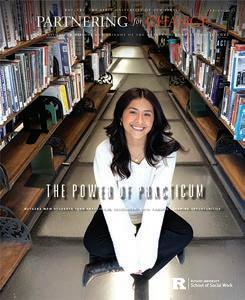

Dear Rutgers School of Social Work Community,
As my first year in the role of dean comes to a close, I write to share some reflections on my time at the School of Social Work. I cannot overstate how grateful I am to each and every one of you. Stepping into the role of dean last summer was one of the proudest achievements of my life. Since then, I have been met with an abundance of support and kindness from the entire community—our students, staff, faculty, alumni, and friends—as I navigated through my first semester at Rutgers. Together, we have achieved so much this year, and I hope you feel as proud as I do for all we’ve accomplished.
As we face scrutiny and, at times, threats to the values that our profession holds dear, I steadfastly affirm our dedication to them. In fact, I see this as a time for us to make a renewed commitment to our guiding principles. We work in solidarity with a vast group of social work peers, institutions, and organizations that share our values. And, here at Rutgers, we are well positioned to forge ahead through the challenges we face. We will continue to promote social and economic justice across and human rights for the communities we serve, and we will continue to lead with compassion in support of and commitment to each other through confusion, fear, and exhaustion.
Thank you for taking the time to read the latest edition of our alumni magazine. In it you will meet our newest faculty members and Alumni Council members and learn about the journeys that led them to service to the School. You’ll also get a glimpse inside our practicum learning program and the power it has to impact the social work profession.
Your contributions to this work continue to make the School of Social Work a leader. Its impact is felt within and outside of the School and ripples through our profession. Thank you for your commitment.
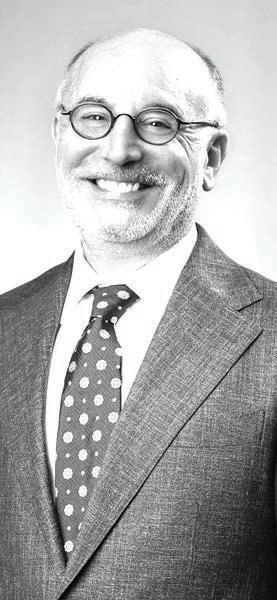


Rutgers School of Social Work is pleased to announce the appointment of Drs. Julia Cusano, Sandra Edmonds Crewe, Amml Hussein, and Durrell Malik Washington Sr. to its faculty.

DR. JULIA CUSANO is an assistant research professor whose research focuses on community and college-campus-based interpersonal violence, specifically sexual and intimate partner violence. Dr. Cusano has a particular interest in using both quantitative and qualitative methods to explore formal and informal help-seeking trajectories and the impact of community-based interventions related to interpersonal violence. The overarching goal of her research is to develop methods and interventions to enhance survivor engagement at the systems level.
DR. AMML HUSSEIN is an associate teaching professor who is dedicated to improving the human condition by leveraging technology to address racial trauma and shape inclusive policies. Passionate about amplifying student voices and elevating overlooked narratives, she promotes a national civic science culture that celebrates underrepresented communities and fosters narrative change through relationship-building and storytelling.
DR. SANDRA EDMONDS CREWE is the 2024-25 Sojourner Truth Social and Racial Justice Visiting Professor and dean emerita and professor at the Howard University School of Social Work. She has dedicated her career and life to enhancing the well-being of African Americans through research, scholarship, and public advocacy. Dr. Crewe has expertise and publications in caregiving, aging, social isolation, and community engagement and is a NASW Pioneer.
DR. DURRELL MALIK WASHINGTON SR. is an assistant research professor who examines the collateral consequences of youth incarceration—exploring how incarceration impacts not only young people but also the broader systems they belong to, including their families, communities, and social networks. Through this work, he aims to build theory and inform policies and practices that foster positive and equitable outcomes for formerly incarcerated Black youth and their families.
We asked them to identify five meaningful objects in their homes and offices.

Early in his career, my dad bought a fountain pen set that I would love doodling with as a child. Years later, just before commencement, he gifted them to me in their original box. This set is so special to me and is one of my most treasured possessions that represents a connection to my father’s journey, work ethic, and the values he instilled in me.

Cappuccinos in my Favorite Mugs
A steaming cup of tea or cappuccino in one of my favorite mugs is a ritual of reflection and comfort. Whether I am preparing for the day ahead or unwinding with a book, this small act keeps me grounded, reminding me that joy is often found in life’s quiet, everyday moments.

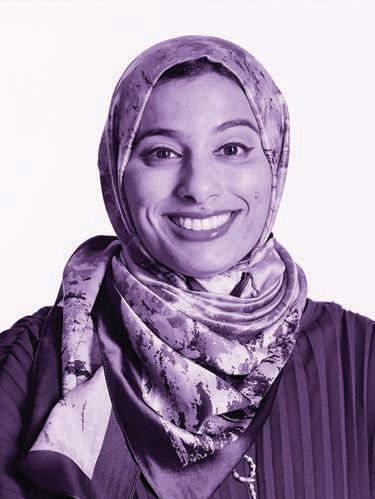

During my first Hajj pilgrimage, my mother gifted me a magenta velvet Quran. Beyond its beauty, it holds deep spiritual significance, representing a transformative journey that reshaped my understanding of faith and self. Every time I turn its pages, I am transported back to the powerful experiences of that pilgrimage, carrying with me the lessons and reflections that continue to shape my life.
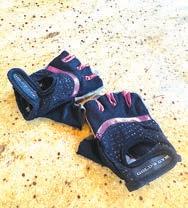
My weightlifting gloves are more than just workout gear—they are a symbol of my commitment to physical and emotional strength. Strength training has been a part of my routine for years, reinforcing discipline, resilience, and focus. These gloves remind me that endurance is as much about inner fortitude as it is about physical power and that pushing through challenges is the path to growth.

Worn at the edges and filled with ink-stained pages, my research journal has been a steadfast companion since the start of my doctoral journey. It is where my boldest ideas on justice, equity, and transformation first took root before evolving into my work. Whenever I seek inspiration, I return to its pages, rediscovering old insights and uncovering new ones. This journal captures the story of my intellectual growth, a mirror of my journey, and a guide for what lies ahead.
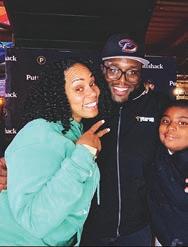
This is my wife and son after playing mini golf in St. Louis. Everything I strive for begins with them—my wife, my son, and soon our baby girl. They are my motivation and my why. As we prepare to welcome our newest addition, we’re also excited for a new chapter at Rutgers—bringing us back to the East Coast and closer to our roots and the family who raised and continues to support us.
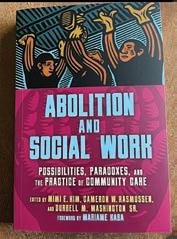
My first book, Abolition and Social Work, is a labor of love and a testament to the brilliance, conviction, and care of my co-editors. This work is a reflection of what grounds us, what moves us, and what we dare to imagine—a social work shaped by justice, held by community, and carried forward in the spirit of liberation. May it serve as both a challenge and an invitation to dream and build otherwise.

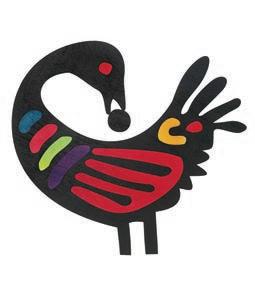
The Sankofa bird reminds us to reach back and gather what was left behind—to honor the past as we build the future. For me, it symbolizes the roots of my purpose, the love and struggle that shaped me, and the responsibility I carry forward. As I begin this new chapter at Rutgers, my hope is to embody that legacy—to teach, learn, and build in ways that honor the past while creating space for liberation to grow.

This photo takes me back to 2014— my first championship with the New York Predators during my semi-pro football days. From high school to college to semi-pro, football has always been more than a game. It taught me discipline, resilience, teamwork, and how to lead through adversity. Those lessons still shape how I show up today—in life, in family, in scholarship, and in the work. Football gave me tools I carry far beyond the field.


This is my mother—a woman whose love, strength, and unwavering belief in me shaped everything I am. She stood in my corner, cheering me on through every season of life. Her wisdom, sacrifice, and presence remain with me in every step I take. I dedicate all that I do in my career to her memory. This journey is hers as much as it is mine. I carry her with me—always. n
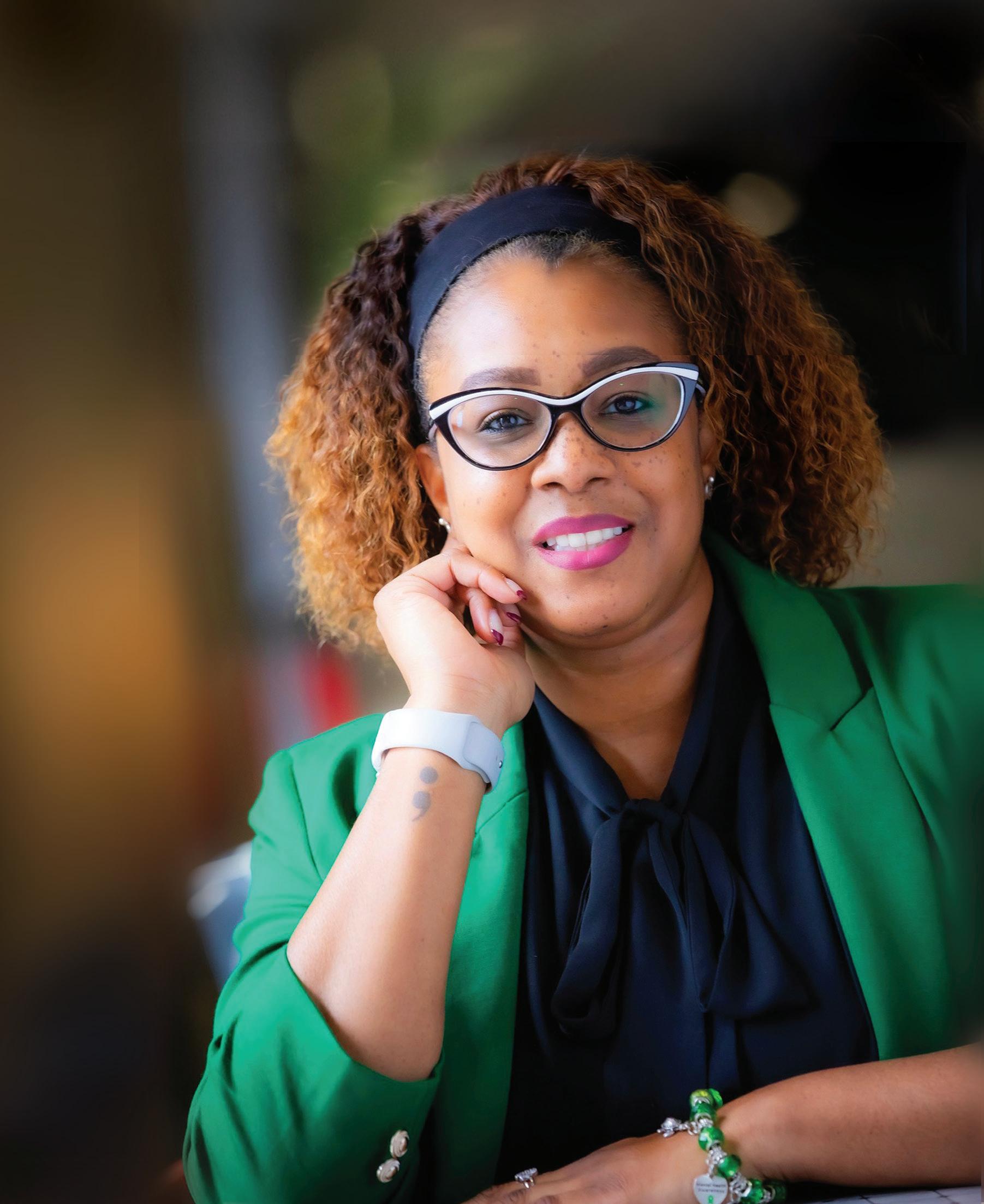
“I believe in being the change you wish to see, and I look forward to leading NASW-NJ into this next phase while continuing to advocate for our members and the communities we serve. With my combined expertise in social work on micro, mezzo, and macro levels, this role truly bridges my varied passions into one position. I am overjoyed being here to lead the charge.”

TIFFANY L. MAYERS, DSW, MSW, LCSW, a 2014 graduate of Rutgers School of Social Work, has been named the newest Executive Director of the National Association of Social Workers New Jersey (NASW-NJ) Chapter.
Dr. Mayers brings over 20 years of experience in the social work profession and over 10 years of experience in higher education to the role. She teaches graduatelevel clinical social work courses at Rutgers School of Social Work and has an impressive background in New Jersey state government, where she contributed to policy, urban redevelopment marketing, and event management.
“Taking on this new role as executive director is very intentional for me,” said Dr. Mayers. “I believe in being the change you wish to see, and I look forward to leading NASW-NJ into this next phase while continuing to advocate for our members and the communities we serve. With my combined expertise in social work on micro, mezzo, and macro levels, this role truly bridges my varied passions into one position. I am overjoyed being here to lead the charge.”
A mental health clinician and expert in child welfare, behavioral health, and private practice, Dr. Mayers has been a dedicated NASW-NJ member since 2012 and has served in numerous roles. She also collaborates with the National Alliance on Mental Illness New Jersey as part of their African American program, AACT-NOW, working to eradicate stigma and increase mental health awareness in Black communities.
Dr. Mayers holds a BA in psychology from Seton Hall University, an MSW from Rutgers University, and a DSW from the University of Kentucky. Her research focuses on bridging the gap between the Black community and mental health services, advocating for stigma-free communities, and improving mental health service delivery in safe, inclusive spaces.
Beyond her professional achievements, Dr. Mayers serves on the Rutgers School of Social Work Alumni Council, is a published author, and actively supports community organizations like the Family Support Organization of Union County and Alpha Kappa Alpha Sorority, Incorporated. n
Stanford University and the Elsevier Data Repository released their list of the top 2% scientist rankings for 2024, which included six Rutgers School of Social (Distinguished Research Professor), Chien-Chung Huang (Associate Dean for Faculty Development and Professor), Emily A. Greenfield (Director of the Hub those included on the list.
Distinguished Professor Victoria Banyard (Co-PI) & Kimberly Mitchell Lema (PI, University of New Hampshire) received a $32,652 competitive revision grant from the University of New Hampshire (part of a larger $353,375 NIMH grant awarded to UNH) for their project, “Understanding Bystanders for SelfDirected Violence Prevention: A Prospective National Study Highlighting Marginalized Youth and Young Adults.” This additional money adds an additional followup to their five-year longitudinal study of helping and bystander behavior among youth exposed to selfdirected violence.
Associate Professor Danielle L. Beatty Moody (lead MPI) and Richard C. Sadler, an associate professor at Michigan State, received a $3.7 million grant from the National Institute on Aging, part of the National Institutes of Health. This examination is essential for developing appropriate strategies to address racial inequities in accelerated aging, particularly in communities where Black Americans live and desire to age in place. The research
also will explore differences based on social and demographic factors, including whether non-Black residents in these communities are affected; examine the role of personal experiences with discrimination; and identify biological and social factors that influence risk and resilience. It will be the first project to fully address and combine these goals.
Distinguished Research Professor Stephen Crystal (PI) received a $3.533 million grant for “Improving Outcomes and Equity for Released Prisoners with SUD: Trajectories of Participation in Pre-Release and Post-Release MOUD, Peer Navigation, and Outcomes” (20242029). Pre-release medication for opioid use disorder
(MOUD) and peer navigation (PN) represent promising strategies for improving re-entry outcomes, but there is great need for better understanding of implementation, utilization, and outcomes of these interventions. Largescale implementation of these programs across New Jersey’s 11 state prisons, together with established state/university partnerships and innovative linkage across clinical and administrative datasets, creates a unique research opportunity to develop and disseminate knowledge on these interventions over time that can inform translation and adaptation across states. Among releases with SUDs the study will: 1.) examine patterns/ predictors of prerelease and postrelease MOUD and PN; 2.) examine recovery outcomes over the re-entry period and their relationship to peer navigation and MOUD, separately and jointly, utilizing innovative event history analyses incorporating propensity scoring and machine learning strategies; and 3.) analyze, document, and disseminate experiences of
implementation and adaptation of PN and MOUD from the perspectives of multiple stakeholders.
Professor, Interim Associate Dean for Academic Affairs & Associate Dean for Diversity, Equity and Inclusion Antoinette Y. Farmer was invited to serve on the editorial board of the Journal of Ethnic and Cultural Diversity in Social Work.
Associate Research Professor, Associate Director of the Center for Prevention Science, and Director of the Northeast & Caribbean Prevention Technology Transfer Center (NeC PTTC) Kristen Gilmore Powell (PI/PD), along with Distinguished Professor and Director of the
Center for Prevention Science N. Andrew Peterson (Co-PI/ Co-PD) and Assistant Research Professor Cory Morton (Co-I), were awarded $739,529 from the Substance Abuse and Mental Health Services Administration (SAMHSA) through a five-year grant (total award amount $3,697,645) for their project, “Continuing Prevention Workforce Development through the Northeast and Caribbean Prevention Technology Transfer Center.” With this new funding, leaders of the Rutgers School of Social Work’s Center for Prevention Science will continue operation of the NeC PTTC for U.S. HHS Region 2, which includes New Jersey, New York, Puerto Rico, the U.S. Virgin Islands, and multiple federally recognized Tribal Nations.

ince 2006, Rutgers School of Social Work has been committed to developing a gerontological social work workforce that is prepared to provide leadership and demonstrate excellence in supporting adults as they age.
The School’s Hub for Aging Collaboration serves as a nexus to strengthen networks among community leaders, researchers, service providers, policymakers, and others toward innovation and leadership for aging in community. Fueled by the social work value of leveraging social relationships for change, the Hub works across disciplines and sectors to improve environments for aging equity among individuals, families, and communities in all of their diversity.
The School also offers an MSW certificate in Aging & Health, which provides students the opportunity to engage in classroom and practicum-based learning at the interface of aging and health.
We spoke with Carla Powers, SSW ’15, who earned an MSW certificate in Aging & Health from the School of Social Work, about her path to a career in gerontological social work.
Tell us about your journey to a career in social work.
Being a caregiver for my late mother inspired me to pursue a Master of Social Work degree. In this role, I had a crash course in navigating the complexities of the health care system, supporting my mom’s health care challenges, and her right to self-determination. I learned about the effects of grief and the importance of managing mental health issues. We interfaced with many health care professionals who provided invaluable physical and emotional support. Based on those experiences, I knew I could make a meaningful contribution to the social work profession and decided to go back to school to earn my MSW.
Why did you choose to attend Rutgers School of Social Work?
My friend pursued her MSW at Rutgers a few years before me. Her coursework and practicum placements were interesting and led to my enrollment. When I attended a Rutgers open house information session, I felt at home with the School of Social Work professors and alumni. Their dedicated engagement in the social work profession was impressive. The rigor of the program and rich course offerings appealed to my intellectual curiosity and the flexible scheduling options were a plus. Rutgers did not disappoint; I am proud to be a Rutgers graduate. In fact, I continue to recognize the great caliber of social work service when I interface with a fellow Rutgers School of Social Work graduate. They demonstrate the utmost professionalism, compassion, and desire to work collaboratively.
What inspired you to earn a certificate in Aging and Health?
I always enjoyed interacting with older adults. Through self-reflective coursework at Rutgers, I realized a contributing factor in pursuing an Aging and Health Certificate was due to a lack of grandparent relationships while growing up. One set of grandparents passed away before I was born, and I had infrequent contact with the other set that lived far away. Given my personal experiences as a caregiver for my mother (as mentioned earlier), I felt confident I could make a positive impact supporting older adults.
What are you currently doing for work?
As a social worker for Jersey Shore University Medical Center’s Geriatrics Department, I work with a small interdisciplinary team, both inpatient and outpatient, to support older adults with increased frailty and challenging psychosocial issues. Our team was hired to create and build this department; we are small but mighty. We advocate for and educate on the specialized needs of frail older adult hospital patients and collaborate with staff to enhance care. We offer comprehensive post-hospital visits in our outpatient office to educate patients/caregivers about diagnoses and care needs, manage polypharmacy, and provide psychosocial support (physical and emotional). Additionally, I manage and host a monthly “Geri Talk” series, which allows for care providers to share their unique expertise and experiences working with older adults with the goal of collaborating to improve care outcomes.
How do you juggle professional commitments?
Self-care is paramount. I have realized the benefits of taking time throughout the day to reset and always eat lunch. I do all my documentation onsite. I rarely take work home, and I enjoy outside interests. Having a social work support system is helpful for processing cases and swapping information to avoid burnout. It also provides networking opportunities. This was not initially available to me in my current role; I created a collaborative social work group, and we’ve all benefited from this much-needed resource.
What advice would you give to our newest cohort of graduates?
The social work role greatly enhances patient care in any setting. Don’t underestimate your professional worth and the power of seeing a patient/client as part of a whole system and honoring his/her right to self-determination. Lastly, being a present listener takes training; it’s an invaluable skill that will enhance your practice as a social worker.
OR THE PAST 12 YEARS, members of the School of Social Work’s Alumni Council have served as ambassadors that interface between the School, the thousands of alumni who earned a social work degree from Rutgers, and the broader social work community. The Alumni Council, which is comprised of alumni who serve in a volunteer capacity, supports future generations of social workers, enhances the professional portfolios of alumni, and keeps graduates connected with their classmates. Council members work collaboratively and actively engage with fellow alumni to promote the School’s reputation and standard of excellence among internal and external stakeholders. The Council also provides recommendations based on trends in the field to School leadership.
We invite you to learn about the newest members of our Alumni Council, now in its 13th year, and the work they’re accomplishing.
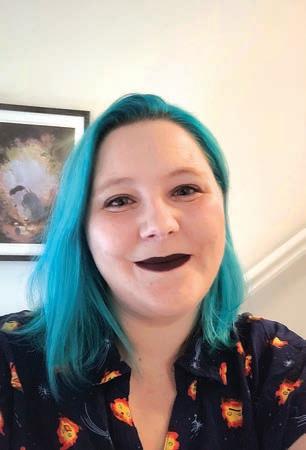
SHELBY SOMERS, SSW ’21
Why did you decide to join the Rutgers SSW Alumni Council?
I decided to join the Alumni Council because I am passionate about connecting with the community. As a graduate of the fully online program, connections to the larger Rutgers community were often harder to find since I was not physically in classes or on campus. I was inspired to join the Alumni Council to help develop programming and opportunities that helped bridge the gap between the online and in-person programs. My hope is to encourage other alumni like myself to reinvest in their school so that we can continue to foster relationships with the next generation of social workers and stay involved in the continued growth of the School of Social Work.
What do you hope to accomplish during your term on the council?
As mentioned above, I aim to tap into the online community of alumni who historically have not always known how to connect with Rutgers after graduation. I want to continue to have programs and events that bring alumni together in various ways. Whether it is returning to the campus they love, visiting for the first time, or connecting virtually so that alumni not physically located nearby
can engage and be involved, I hope to create more avenues for alumni to participate in the community that has been created actively.
As a leader in the field of social work, what advice would you give to someone just starting out in their career?
I would encourage individuals just starting out to connect with others in the field and explore all that social work has to offer. When I was first starting, I thought there was one set way for things to be done or one idea of what my future could look like. As time went on and I had the opportunity to speak with other social workers, my eyes were opened to the many ways people find themselves in the field of social work. I would encourage anyone starting out to remain curious and be willing to ask questions, if given the chance, to others who are in the field so they can learn the things that are not easily conveyed in the classroom.
SUSAN VAN VLEET, SSW ’75
Why did you decide to join the Rutgers SSW Alumni Council? Because it was time for me to give back, and I want social workers to know how broad our skill base is and how applicable it is everywhere. I also want us to receive a professional-level wage. Many people don’t even know we exist, and we are paid far less than other professionals with far less of a skill base than we have. I learned this when I moved from child welfare work to working

with folks in multinational companies. It was a surprise to me that my social work skills were as applicable in the C-suite as they were in child welfare.
What do you hope to accomplish during your term on the council?
Move the needle so we social workers are recognized for the amazing work we do AND make sure we get credit for the work and recognition for it in the form of compensation. We are so skilled and are very successful, so we should be paid at that level and respected at that level.
As a leader in the field of social work, what advice would you give to someone just starting out in their career?
The skills you bring to people are invaluable, so believe in those skills. Make sure you value the work you are doing because it is so important to people worldwide. If you value it, others will, too. Be ready to use your skills with varied groups of people even if you don’t agree with them. Your skills can win them over, and you will see amazing results for them and for their families.
Why did you decide to join the Rutgers School of Social Work Alumni Council?
I decided to join the Alumni Council because I am deeply committed to supporting and fostering stronger connections between alumni, current students, and the University. As a Rutgers
School of Social Work graduate, I know firsthand how impactful the program can be, and I want to give back by contributing to student success, professional development, and alumni engagement. I also recognize the importance of creating a strong, inclusive network where social workers can share resources and mentorship that propel us in our field.
What do you hope to accomplish during your term on the council? During my term on the council, I hope to strengthen alumni engagement with current students. I want to ensure that both current students and recent graduates have access to resources that will help them transition into the field of social work. Additionally, I am passionate about supporting diversity, equity, and inclusion efforts within our alumni community to ensure all voices are heard.

As a leader in the field of social work, what advice would you give to someone just starting out in their career?
To someone just starting out in social work, I would say embrace the learning process and seek support. Social work can be both rewarding and challenging, and it’s important to find a strong support system, such as mentors, supervisors, or peer networks. Never hesitate to ask questions, advocate for yourself, and continuously seek opportunities for professional growth. Also, be open to different paths within the field because social work is diverse, and your career may evolve in unexpected and meaningful ways. Don’t forget to prioritize self-care; social workers give, and sustaining this work requires taking care of ourselves as well.
Thank you to all of our alumni who have sent us their news and updates. We encourage you to keep us posted with any good news about your job, your life, or your family. Email your news to lzazenski@ssw.rutgers.edu.
Michelle Ballan, Ph.D. SSW’95, RC’93 serves as associate dean for research and professor of social welfare and professor of family, population and preventive medicine at Stony Brook University Health Sciences Center where her research, teaching, and service are dedicated to ameliorating barriers for individuals with disabilities. In 2024, she received three awards for her work and contributions to the field of social work. Women’s eNews, the global women’s news source, named Dr. Ballan one of 21 Leaders for the 21st Century and bestowed on her the Loreen Arbus Disabilities Champion Award. Dr. Ballan also received the United States Department of Justice’s 2024 National Crime Victims’ Service Award, “Building Knowledge Through Research,” which recognizes individual researchers or research teams that made a significant contribution to the nation’s understanding of crime victim issues. Additionally, Dr. Ballan received the 2024 Herald Excellence in Healthcare Award, which honors individuals whose dedication and commitment has made a difference in the health and well-being of others.
Bernard Bivens, SSW’78 has been working for the City of Philadelphia as a behavioral health clinical consultant for approximately 30 years. He credits Rutgers School of Social Work for building the foundation for his successful career.
Joan Hammond Brame, SSW’82 retired in 2003 after a 32-year career in academia and hospital administration. Immediately after retirement, Dr. Brame developed a consulting company called Brame Quality Assistance, which provided consultation to government service agencies in the area of standards and regulation compliance. Along with her consulting business, Dr. Brame was fortunate enough to have had the opportunity to combine her love of physical fitness with her desire to be a hands-on fitness business owner. From 2004 to 2020, she created and operated a unique values-based fitness facility called Empower Fitness Gym for Women. Empower Fitness embodied an empowerment model of female health through a practical
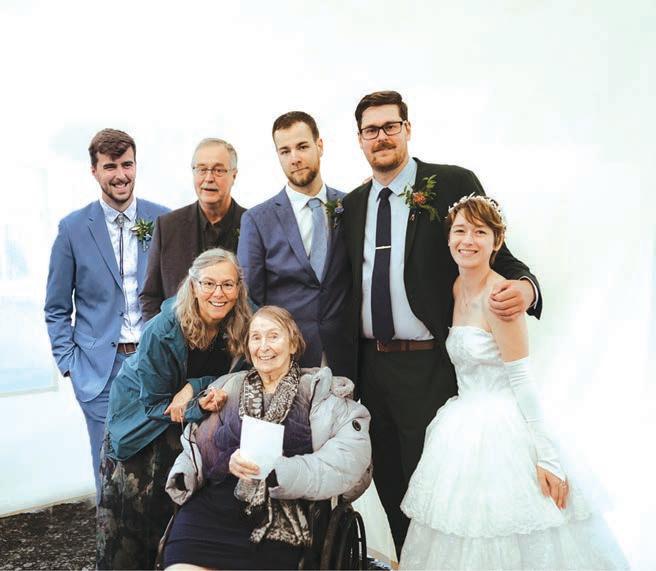
After graduating and a brief stint working with Monmouth County disabled individuals in specialized placements, Janice Banta, SSW’81 moved to Alaska. From 1983-1990 she served as a clinical therapist with high behavior children in residential treatment. From 1990-2004 she served as a guardian ad litem for the state of Alaska advocating for the best interests of children in the court system, and from 2004-2020 she was an elementary school counselor and educator trainer. Throughout that time, she served as a practicum supervisor for the University of Alaska School of Social Work and continues in that role in her retirement. Janice feels very fortunate that her degree allowed her to serve children in such diverse settings. Janice is pictured here with her husband, Joe, and his mom, their three sons, and their daughter-in-law at their oldest son’s wedding.

approach combining exercise, nutrition, and wellness (mental/spiritual/social); a fitness assessment that targeted specific aspects of unique health concerns of women over 40 (including bone health, arthritis, weight management, and balance); customized exercise routines for women and holistic healthy lifestyle changes; and a supportive community atmosphere encouraging inclusion and acceptance. Dr. Brame’s social work competencies were crucial to the success of this business. Since closing the gym in June of 2020, she continues to teach fitness classes to older adults, lead free weekly hikes for the community, substitute teach in the Trenton school district, and do global volunteering in faraway places (usually her assignment is in the social service area). Her greatest passion is enjoying her three wonderful grandchildren!
Charise Breeden-Balaam, SSW’08 presented her research on food insecurity and its impact on community college students at two prestigious conferences: the American Association of Blacks in Higher Education 2025 National Annual Conference, Fueling
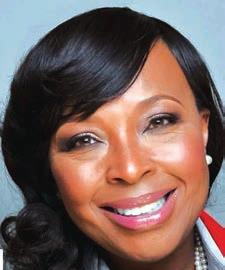
Futures: Addressing Food Insecurity Among Community College Students, and the Council for the Study of Community Colleges Conference, The Baby Eats First: Exploring Food Insecurity Among Community College Student-Parents. In addition to these significant academic contributions, Dr. Breeden-Balaam was recently appointed as field director for the newly-established Master of Social Work program at Marymount University. Her dedication to addressing food insecurity and advancing social work education continues to make a profound impact.
Karen Herrick, SSW’84 created a webinar in which she teaches other therapists about life after death. Recently, after more than 150 years of research into spirituality, near-death, and mystical experiences, the American Psychological Association published a book by a Canadian researcher providing evidence of life after death. Karen uses this to support her work teaching practitioners ways to help their clients with chronic grief. She enjoys the feedback of those who spiritually have discovered that their loved ones “are still there” in some form, which aides in chronic grief and helps other therapists better understand spirituality, mystical, and near-death.
Colleen Daly Martinez, SSW’94, ’95, ’09 is an assistant professor of social work at Ramapo College of New Jersey where she teaches across the curriculum in their BSW and MSW programs, including a play therapy course she developed for MSW students. Dr. Martinez was granted tenure at Ramapo College in February.
Nicholas Mazza, MSW, Ph.D., SSW’77 is working as poet-in-residence, a new, voluntary role at Florida State College of Social Work. In this role, emeritus dean and professor Dr. Mazza facilitates events and opportunities for the College of Social Work and larger community to benefit from expressive writing, particularly poetry, to enhance social work education, practice, and service. The position provides a unique opportunity for current students, alumni, and other members of the larger university community to engage with Dr. Mazza, an accomplished poet and writer. He is the author of Poetry Therapy: Theory and Practice, 3rd Edition and the founding (1987) and continuing editor of the Journal of Poetry Therapy. In 2024, Dr. Mazza hosted a poetry therapy workshop to foster healing and growth at The Kearney Center in Tallahassee, Florida, for people experiencing homelessness. Dr. Mazza has also been actively involved (via Zoom) in bringing poetry to Ukraine through a workshop, “Healing Words: Poetry Therapy Techniques for Resilience and Hope,” and consultation with psychologists who are providing services to front line military members. He also continues to be involved in the College’s arts
and athletics program that he founded in 2012 to promote positive

Victoria Murray, SSW’13 is a LCSW who opened a private practice, Root to Rise Therapy, specializing in perinatal mental health and treating women struggling with anxiety and perfectionism. She specializes in working with BIPOC clients around cultural identity issues as she comes from a multiracial background herself. Victoria completed advanced training through Postpartum Support International and enjoys working with new parents around concerns like role adjustments, navigating marital issues, and dealing with anxieties that arise during parenthood. She also treats mothers struggling with postpartum anxiety or depression and pregnancy loss. Prior to opening her practice in 2019, Victoria worked in various settings in New York City, including a group practice, community mental health center, and inpatient psychiatric hospital. She currently sees clients at her practice in New Jersey, New York, and Colorado. Learn more at victoriamurraylcsw.com.
youth development. Targeting youth ages 11-14, the program aims to enhance selfawareness, confidence, emotional literacy, and interpersonal relationship skills while cultivating a resilient mindset.
Jessica Allison Phipps, SSW’94 was the inaugural recipient of the Rutgers—Newark Department of Social Work Distinguished Alumni Award. This prestigious award is presented to alumni who have demonstrated outstanding achievements and contributions to the field of social work, embodying the values and mission of the department. Her dedication, passion, and remarkable
accomplishments have not only made a significant impact on the field but have also inspired others to pursue excellence in social work. The award was presented on May 3, 2024. Jessica specializes in health care administration in nephrology. In 2011, she was awarded the National Kidney Foundation Merit Award, and in 2017, she was the first social worker to be inducted as a fellow of the National Kidney Foundation, recognizing her commitment to patients, the development of the profession, and her efforts to raise awareness of chronic kidney disease internationally.
Maxwell (Max) Sharkey, SSW’15 started working at a new medical respite in Worcester, MA, which was created as a partnership between his employer, UMass Memorial Hospital, and Southern Middlesex Opportunity Council (SMOC), the largest housing services provider in Central Massachusetts. It began as part of a five-program grant through the Massachusetts Executive Office of Human and Health Services and will soon be funded by MassHealth, the state’s Medicaid program. Before creating this respite, there were only two others in Massachusetts. This respite’s target population is homeless individuals who are medically cleared from hospitallevel care but are too sick to discharge to traditional shelter. The goal is to find some kind of placement, usually an apartment or rooming house through SMOC. As the social worker, Max screens patients from the hospital and provides psychosocial support at the respite. This includes direct treatment and referrals for treatment of mental health issues, substance use issues, providing health literacy education (including going to appointments with patients), managing insurance issues, making referrals for discharge planning support, and more. The respite currently has seven beds, and the team is hoping to add three or four more later this year.

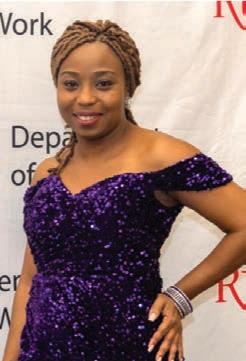
Since graduating from Rutgers, Ravjit “Ruby” Sekhon, SSW’10 has had the honor of serving in various roles that reflect her commitment to mental health, advocacy, and community wellness across many systems of care. As director of the Middlesex County New Jersey Statewide Student Support Services (NJ4S), Ruby leads a team that delivers early intervention and prevention services to schools, educators, and families across the county. NJ4S, a statewide initiative under the Department of Children and Families, is overseen by the University Behavioral Health Care’s School and Community Partnerships Program. It focuses on student well-being, educator support, and community education through a comprehensive, no-cost, threetiered approach. Ruby is a proud product of Middlesex County public schools, and this program allows her to give back to the system that shaped her and offer support to the next generation in meaningful ways. NJ4S can be beneficial to all schools within the county in offering individualized programming rooted in evidence-informed or -based research.
Ruby is also the founder and owner of Daya Wellness, a private practice focused on providing culturally responsive, traumainformed care, with a specialization in BIPOC, specifically South Asian, mental well-being. As the daughter of South Asian immigrants, she understands firsthand the challenges of navigating cultural identity and systemic barriers. In Punjabi, “Daya” means compassion, and her practice offers such a space for clients to address their struggles while honoring their unique experiences.
Her work also extends to mentoring and guiding the next generation of social workers. Ruby provides clinical supervision to new social workers as well as early career professionals, helping them navigate the complexities of the field while fostering their growth and confidence. As a longtime member of the NASW-NJ, Ruby was elected as a delegate assembly member where she advocates for policies rooted in social justice and equity and works to amplify voices of fellow social workers throughout New Jersey and across the United States.
Ruby’s journey has been deeply shaped by her time at Rutgers School of Social Work, where she learned to lead with empathy, think critically, and embrace the complexities of this profession.
If Shannon (Shae’) Taylor, SSW’22 could define the last two years since she graduated in one word, it would be growth. After earning an MSW and due to contractual obligations, she continued working as a substitute teacher at LEAP Academy in Camden for the 2021/2022 school year. In 2023, she worked as a case manager for the Camden City Housing Authority. She believes her roles at LEAP and the Housing Authority prepared her for the journey she was about to embark on with the Center for Family Services. In July 2023, she joined the family preservation services team as a full-time, salaried counselor. In May 2024, she was afforded the opportunity to secure a second position within the organization as a Project First A counselor, a fee-for-service position. Both positions have proven to have their challenges but for the most part have been extremely rewarding. The hands-on learning experiences further enriched her skillset and motivate her to continue to grow in this field and with this organization. Recently, Shae’ applied to be a family preservations services supervisor, and it is her hope that during the next alumni checkin she will report that she is a supervisor.
Lisa (Henning) Thomas, SSW’83 retired in 2018 after a more than 30-year career as director of child and family services in a nonprofit serving young children with disabilities, developmental delays, or are at risk for developmental concerns because of family challenges. Lisa has become the board president of a new nonprofit organization, Hope Family Village, which supports families caring for loved ones with serious mental illness. Hope Family Village is designing a cohousing community in Virginia that will provide acceptance and support for individuals facing mental health challenges. This 25-acre project developed on donated, state-owned surplus property will include 25 single family homes for sale, a common house with shared amenities for use by the community, will house support groups offered by the local chapter of the National Alliance for Mental Illness, and operate two Fairweather Lodges for individuals in active mental health recovery that will offer peer support and light coaching. Hope Family Village expects to break ground in 2026. For updates, visit hopefamilyvillage.org. n
Michael J. Vaillancourt, SSW’89 received his MSW from Rutgers School of Social Work and Ed.M. in counseling psychology from the Graduate School of Education at Rutgers. Michael was hired by the VA in 1982 and assigned to the ambulatory care division. He remained the primary clinical social worker for the Hackensack, Paterson, Jersey City, Morristown, and Elizabeth CommunityBased Outpatient Clinics where he was an integral member of 15 patient-aligned care teams, which serve approximately 14,000 veterans. Michael received the title of Board-Certified Diplomat, which is issued to those who demonstrate a sustained ability to practice clinical social work at the highest level of professional competency by organizations after close academic and professional scrutiny. He also worked for a private practice during the evenings to veterans, exemplifying both Rutgers’ and the VA’s core values: compassion, commitment, excellence, professionalism, integrity, accountability, and stewardship. His daughter, Danielle, went on to receive her MSW, also at Rutgers School of Social Work.

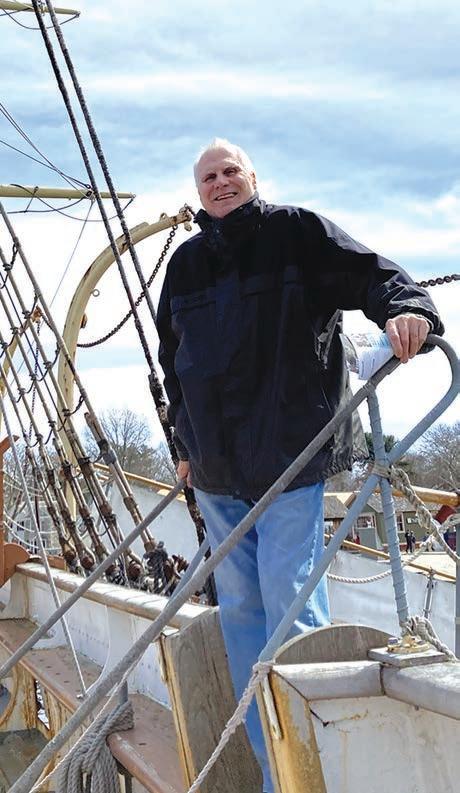

“I’ve seen firsthand the impact that can be made when professionals from different fields work together to holistically support the needs of a student in an academic setting.”
—CELESTE REED advanced standing MSW student
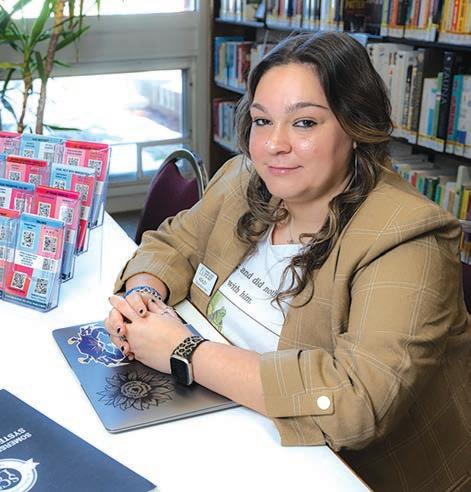
sharpening her counseling skills at North Brunswick Township High School in Central New Jersey. Reed not only supported students through the school’s RAIDERSpace counseling center, but she also provided specialized guidance to those participating in the school’s Road to Success (RTS) program, an intensive initiative designed to keep atrisk students on the path to graduation.
During her practicum, Reed provided individual and group counseling sessions focused on mental health, relationships, and academic challenges. Her role also involved collaborating closely with parents and colleagues across departments during Individualized Education Program meetings, Section 504 meetings for students with disabilities, and other critical discussions.
“When it came to interacting with the students, my role in many cases was to be a trusted adult,” she says. “Many students lack close parental relationships or supportive adults in their lives. My job was to provide them with a safe space, listen to their concerns, and connect them with resources to help them regain a sense of control in their lives.”
For RTS participants, who frequently face issues such as credit deficiencies and chronic absenteeism, Reed’s support was even more intensive and personal. “People have a lot of assumptions about these students,” she says. “But when you sit with them, you quickly realize that their unique life experiences have shaped their academic journeys. They have dreams, but the pathway forward isn’t always clear. That’s where tailored case management and support become essential.”
Through counseling, goal-setting, and other supportive strategies, Reed empowered students to take concrete steps toward achieving their goals—whether that meant
going to college, getting a driver’s license, or landing a job. “It’s been incredible to celebrate those wins with them,” she says, adding that the experience deepened her understanding of her role as a social worker. “I truly learned the importance of multidisciplinary collaboration,” she says. “I’ve seen firsthand the impact that can be made when professionals from different fields work together to holistically support the needs of a student in an academic setting.”
Yet Reed’s experience highlights that practicum placements aren’t just beneficial for MSW students. By bringing with them fresh ideas, energy, and up-to-date knowledge of the latest theories and interventions, practicum students enrich their host organizations as well. “Our students are high-quality volunteers who are applying everything they’re learning in their graduate program to the work they’re doing,” adds Lamar. “For professionals who’ve been in the field a long time, practicum students inspire us to innovate and approach our work from fresh angles.”
For Eric Olander, a social worker and RTS program coordinator at North Brunswick High School, Reed was a remarkable asset— not just because of her rigorous training at the School of Social Work, but also due to her unique ability to connect with students. “Being closer in age to the students allowed her to establish rapport quickly and effectively,” Olander says. “That helped her build meaningful connections and have a lasting impact.”
While approximately 90 percent of Rutgers MSW students focus on clinical social work rather than management and policy, all students are trained in engagement, intervention, and assessment. In some cases, students leverage their practicum experience to also conduct meaningful research for their host organizations during the MSW Program Evaluation course (formerly Research Methods 2). In this class, students learn how to craft research questions, apply qualitative and quantitative methods, and perform meaningful evaluations. While hypothetical datasets are available, students are strongly encouraged to analyze real-world data gathered from their practicum sites when possible.
Reed seized this opportunity in Assistant Professor Woojin Jung’s section of this
course, collecting and analyzing data from North Brunswick High School’s RTS program to identify trends in student graduation rates. Her research explored variables such as age, grade, gender, race, and ethnicity. “We discovered that 82 percent of students in the RTS program were on track for graduation,” Reed shares. “It was also interesting to find that many of these students came from minority backgrounds, which tend to be more disenfranchised than other communities.”
Inspired by Reed’s findings, Olander collaborated with teachers to develop personalized interventions. “Celeste’s research allowed us to adopt a more tailored approach,” Olander says. “As a result, our success rate increased dramatically.”
Working with real-world data also introduces students to the practical challenges social workers frequently encounter in the field. For example, data may be inconsistent, incomplete, or buried within paper records, making it difficult to pinpoint essential variables for a meaningful evaluation. However, these very obstacles offer students an invaluable opportunity to sharpen their critical thinking skills. “Students have to determine what outcomes matter and use their judgment to assess success,” explains Jung. “Real-world data is often messy, requiring critical thinking to navigate gaps and inconsistencies.”
Utilizing data from her practicum gave Reed a deep appreciation not only for the nuances involved in conducting effective evaluations but also for the importance of structured, intentional data collection. “Moving forward, I learned that we need to be mindful about when and how we collect data,” she says. “Evaluation isn’t an afterthought. It’s essential for measuring success and guiding future work.”
These experiences underscore the truly transformative potential of the school’s practicum program. “The MSW is a professional degree,” Jung explains. “We emphasize hands-on experience, but we also want students to apply a research lens to their work. Social workers need to inform their practice with data-driven insights and, at the same time, their hands-on experiences can improve how we conduct research. It’s a powerful synergy that drives change by enriching students, their host organizations, and the practice of social work itself.” n


We extend our deepest sympathy to the loved ones of the deceased alumni and friends listed below whose passing has been shared with the School between February through June 2025.
Sister Patricia Beaumont, SSW’82
Ms. Karen M. Cote, SSW’89
Mr. Ira Dorfman, SSW’85
Ms. Norma S. Goldberg, SSW’83
Mr. Earl Lowell Greaves, SSW’63
Ms. Ann M. Hecker, SSW’82
Mr. Christopher T. Jones, SSW’16
Mr. Maury L. Lieberman, SSW’66
Ms. Kathleen M. Little, SSW’94
Ms. Mary P. D. Long, SSW’96
Mr. Silvio C. Lozano, SSW’87
Dale A. Lyon, Ph.D., SSW’80
Mr. Richard F. MacKintosh, SSW’76
Ms. Karen A. Mulvey, SSW’72
Ms. Diana D. Partusch, SSW’87
Ms. Joan M. Prentzel, SSW’81
Mr. Peter M. Pufki, SSW’71
Mr. Raymond Brian Regan, SSW’83
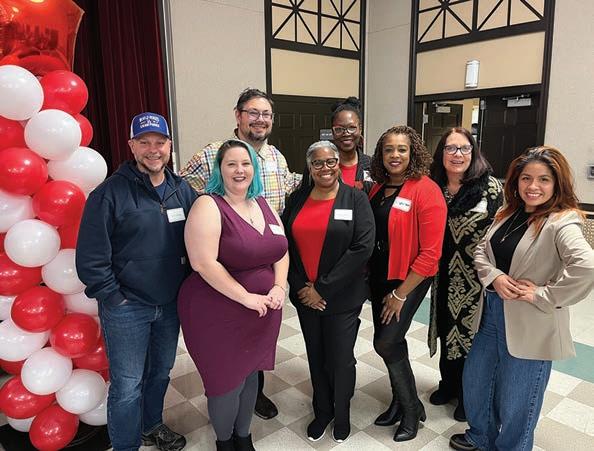


The School of Social Work Alumni Council is establishing a Speakers’ Bureau and is seeking alumni to join it to share their expertise on a volunteer basis. Opportunities include speaking or presenting at events hosted by the Alumni Council. We encourage you to submit your resume and a proposal via email to alumni@ssw.rutgers.edu that includes the following information:
n Name
n Credentials
n Areas of expertise (up to five topics)
n List up to five events where you have presented
n Bio (maximum 100 words)
n Presentation title (maximum 15 words)
n Presentation description (maximum 250 words)
n Presentation format preference: in-person, virtual, or both
We appreciate your interest in speaking or presenting at a future Alumni Council event.
By MARGARET MCHUGH
Originally published in Rutgers Today
arla Blunt-Carter’s emotions seesawed on election night. She is a longtime campaign advisor to her sister, Lisa Blunt Rochester, who was about to make history as Delaware’s first Black U.S. senator and one of two African American women poised to serve at the same time in the upper chamber. Yet elation was tinged with sorrow— it was their first election without their father, a fellow School of Social Work alum, who had inspired their commitment to public service. And then came the sting of a crushing loss at the top of the Democratic ticket.
“Her victory brought immense joy to all of us, and the moment was also bittersweet as we deeply felt my father’s absence,” said BluntCarter, an associate professor of professional practice at Rutgers School of Social Work. “We felt heaviness in the moment, but also hope.”
Democrats Blunt Rochester and Angela Alsobrooks of Maryland are the third and fourth Black women ever elected to the U.S. Senate. “To be able to see what is possible is inspiring,” Blunt-Carter said.
Though too long in coming, having two Black women serve the Senate at the same time is significant, said Debbie Walsh, director of the Center for Women in American Politics at Rutgers.
“It is substantively important because they will bring important
and missing perspectives to the Senate, but it is also symbolically important to Black women and girls who will, for the first time, see two members of the Senate who look like them. It sends a powerful message of what is possible,” Walsh said.
The victories offered them solace amid the disappointment over Kamala Harris’s loss to Donald Trump. Blunt Rochester, first elected to the House in 2016, entered the Senate ready to meet the challenges ahead.
“My sister understands her assignment. She’s not mad, she’s motivated,” Blunt-Carter said. “She is a consensus-builder willing to work across the aisle.”
Blunt-Carter said she’s glad the freshmen senators have each other to lean on. She will remain her sister’s personal advisor in the Senate and has been helping to hire staff.
Her Father’s Footsteps
Blunt-Carter’s roles as political social worker, campaign advisor, and social work professor inform one another, she said. Her political experiences serve as case studies in the classroom. “I’m training future social workers to engage in community empowerment,” she said.
A stroke in 2019 reminded Blunt-Carter of life’s fragility. “I want to do as much as I can while I can,” she said.
Blunt-Carter was 9 years old when she participated in her first campaign, joining her dad as he knocked on doors and attended community meetings in Wilmington. “It was the first time I felt
Rutgers, The State University of New Jersey
120 Albany Street, Tower One, Suite 200
New Brunswick, NJ 08901
Visit us on the web: socialwork.rutgers.edu
Email us at: lzazenski@ssw.rutgers.edu
Follow us on Facebook, X, Instagram, LinkedIn, and YouTube at RutgersSSW

“The man who moves a mountain begins by carrying away small stones.”